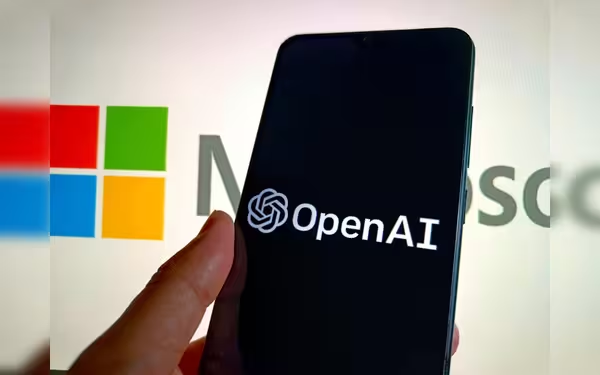Saturday, November 16, 2024 07:55 PM
Sebastien Bubeck Joins OpenAI After Leaving Microsoft
- Sebastien Bubeck departs Microsoft for OpenAI.
- Focus on developing affordable AI models.
- OpenAI faces leadership turnover amid commercialization shift.
 Image Credits: mashable_me
Image Credits: mashable_meSebastien Bubeck leaves Microsoft to join OpenAI, focusing on affordable AI models amid leadership changes.
In a significant shift within the artificial intelligence landscape, renowned AI researcher Sebastien Bubeck has announced his departure from Microsoft to join OpenAI. This move comes at a time when OpenAI is experiencing a notable turnover in its leadership, raising questions about the company's future direction and strategy.
According to reports, Bubeck informed his team on Monday about his decision to leave Microsoft, where he held the position of Vice President of Microsoft GenAI. His work at Microsoft involved leading a machine learning team that developed Phi models, which are designed to be low-cost and lightweight alternatives to OpenAI's GPT models. These models are currently utilized in various applications, including Bing Chat and Office 365 AI features.
The exact role Bubeck will assume at OpenAI remains unclear. However, a Microsoft spokesperson indicated that he is leaving to "further his work toward developing AGI," or artificial general intelligence. This ambition aligns with the growing trend among AI companies to focus on creating smaller, more affordable AI models that can perform similar tasks as their larger counterparts but at a fraction of the cost.
OpenAI has faced challenges recently, with several high-profile exits from its leadership team. Notable departures include co-founders Ilya Sutskever and Greg Brockman, as well as CTO Mira Murati. These exits have been attributed to reported disagreements regarding the company's shift towards commercialization, which some believe is moving OpenAI away from its original mission as a research lab.
As OpenAI continues to evolve, it has begun launching mini versions of its models, such as GPT-4o mini and o1 mini. These lightweight models represent a strategic pivot towards more cost-effective solutions, which could be crucial as the company seeks to turn a profit and recover its substantial $6.6 billion investment from funders.
Sebastien Bubeck's transition to OpenAI could signal a new chapter for the organization, especially in its pursuit of developing innovative AI technologies. As the industry shifts towards more efficient and affordable AI solutions, Bubeck's expertise may play a pivotal role in shaping the future of artificial intelligence. The coming months will be critical in determining how these changes will impact both OpenAI and the broader AI landscape.













